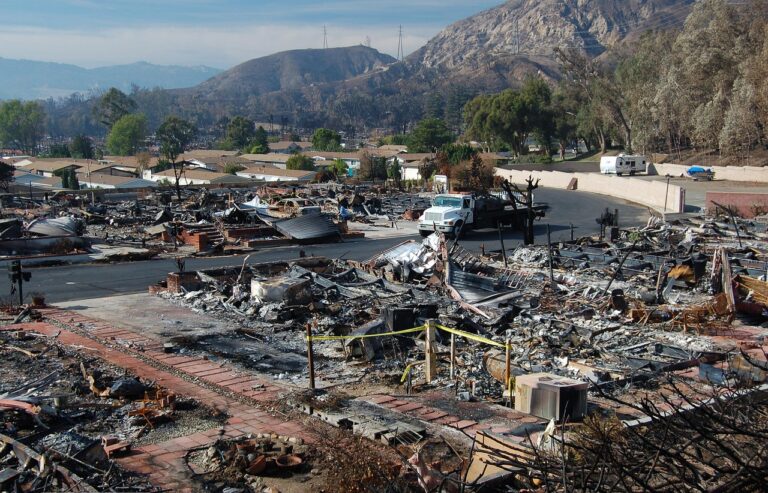Choosing the right homeowners insurance policy is a critical step in protecting your home. It helps you stay secure when unexpected events cause damage or loss. With several plans available it can be overwhelming to decide. This guide will help you make a smart decision that meets your needs and budget.
Explore the Difference Between HMO and PPO and compare Term vs Whole Life Insurance. For drivers check Auto Insurance Quotes or find the Best Full Coverage Auto Insurance in 2025. Visit Insurance.com for more insights.
H2: Understand What Homeowners Insurance Covers
Homeowners insurance protects your home from various risks. Most policies include protection against fire theft storms and certain types of water damage. It also includes liability coverage which helps if someone gets injured on your property. Knowing what is covered helps you avoid unwanted surprises when you need support the most.
H2: Know the Types of Homeowners Insurance Policies
There are different types of homeowners insurance policies and each one suits a specific need. The most common type is the HO-3 policy which offers broad coverage for your home and personal belongings. HO-1 and HO-2 offer limited protection while HO-5 provides comprehensive protection. Pick the one that matches your home’s risk factors and value.
H3: HO-1 and HO-2 Policies
HO-1 and HO-2 policies are basic plans. HO-1 covers only a few dangers like fire and theft. HO-2 offers protection from more risks including windstorms and damage from falling objects. These are often cheaper but may not offer enough coverage for most homeowners.
H3: HO-3 Policy
The HO-3 policy is the most popular choice among homeowners. It covers the structure of your home against all dangers unless excluded. Your personal belongings get named peril coverage which means protection from listed events. It offers a good balance of price and coverage.
H3: HO-5 Policy
The HO-5 policy is ideal for homeowners who want maximum protection. It includes all the benefits of HO-3 but adds broader coverage for personal property. You also get higher coverage limits and fewer exceptions. It is perfect for those with high-value items or custom-built homes.
H2: Evaluate Your Home and Belongings
Before buying insurance assess your home and belongings. Note the age of the structure materials used and special features. Make a list of all valuable items inside including electronics furniture and jewelry. This helps determine the level of coverage you need and ensures you get fair compensation after a loss.
H2: Compare Quotes From Multiple Providers
Do not settle for the first quote you get. Contact at least three providers and ask for detailed quotes. Look beyond the premium and compare deductibles coverage limits and included protections. Some companies may offer discounts for security systems or bundling with auto insurance.
Want to know what your policy protects? Read What Does Homeowners Insurance Actually Cover? and compare it with What Does Renters Insurance Actually Cover?. Also check the Best and Worst Homeowners Insurance Companies before you choose a provider.
H3: Understand Deductibles and Limits
A deductible is the amount you pay before your insurer pays the rest. Higher deductibles lower your premium but increase your costs during a claim. Policy limits define the maximum payout for a covered loss. Make sure the limits match the value of your home and possessions.
H2: Review the Insurance Provider’s Reputation
Choose a provider with a strong reputation. Read online reviews and check customer ratings. Look at how the company handles claims and whether it offers good support. A reliable provider will make the process smoother during difficult times.
H2: Read the Fine Print of the Policy
Always read the full policy document before signing. Look for exclusions and limitations. Some policies may not cover flooding or earthquakes. Others may limit payouts on luxury items. Understand what is not included so you can make adjustments or buy extra protection if needed.
H2: Decide on Actual Cash Value or Replacement Cost
When insuring your belongings you can choose between actual cash value or replacement cost. Actual cash value pays the item’s worth after depreciation. Replacement cost pays to buy a new one. Replacement cost is more expensive but offers better protection.
H2: Consider Add-Ons for Extra Protection
Some homeowners need more than a standard policy. Add-ons like flood insurance earthquake coverage or identity theft protection can be included. Review your home’s location and risks to decide if you need these extras. It is better to be prepared than face large out-of-pocket expenses.
H2: Bundle Insurance Policies to Save Money
Many companies offer discounts when you bundle home and auto insurance. Bundling can save money and make managing your policies easier. Ask your provider about package deals or explore options on Best Insure Info (https://lahoribooks.com/) to compare bundled plans.
H2: Pros and Cons of Homeowners Insurance
| Feature | ➕ Pros | ❌ Cons |
|---|---|---|
| Financial Protection | Covers damage from major events | May not cover all types of disasters |
| Peace of Mind | Offers sense of security and safety | Premiums can be expensive |
| Liability Coverage | Helps with legal and medical bills | High deductibles affect claims |
| Customization Options | Add-ons for specific needs | Reading terms takes time |
| Replacement Cost Option | Full compensation for new items | Costs more than actual cash value |
H2: Use a Checklist When Shopping for a Policy
- Evaluate your home’s condition and location
- List all personal valuables
- Compare policies from different providers
- Review the financial strength of the insurer
- Ask about discounts for safety features
A checklist helps you stay organized and ensures you do not miss any key points when choosing a policy.

H2: Reassess Your Policy Every Year
Your insurance needs may change over time. Maybe you added a new room or bought expensive furniture. Review your policy every year to make sure it still fits your situation. This keeps you fully protected and avoids underinsurance.
H2: Work With an Insurance Agent if Needed
If you feel confused about insurance terms work with a local agent. They can explain options clearly and help you choose what works best. An agent may also help you qualify for special discounts or policy packages.
H2: Learn From Real-Life Claims Examples
Reading real claims stories can help you understand how policies work. You can see how coverage applies in different situations and what to expect during the process. Sites like Best Insure Info (https://lahoribooks.com/) offer real examples that show both success and issues homeowners face.
H2: Stay Updated With Insurance Trends
Insurance products change with time. New threats like cyber attacks and climate change affect coverage. Stay informed by reading articles or visiting sites like Best Insure Info. This helps you adapt your policy to future needs.
✅ Frequently Asked Questions
✅ What is the best type of homeowners insurance policy?
The best policy depends on your home and risk level. Most homeowners choose the HO-3 policy for broad protection. HO-5 is better for high-value homes and belongings.
✅ How much homeowners insurance do I need?
You should have enough coverage to rebuild your home and replace all personal items. Evaluate current market costs and consider local building rates when choosing coverage limits.
✅ Does homeowners insurance cover water damage?
It depends on the cause. Most policies cover sudden water leaks but not flood damage. You may need extra coverage for floods depending on your area.
✅ Can I change my policy after buying it?
Yes you can update your coverage or switch providers. Review your policy yearly and make changes when your home or lifestyle changes.
✅ How can I lower my homeowners insurance premium?
You can install safety devices increase your deductible or bundle with auto insurance. Shopping through platforms like Best Insure Info (https://lahoribooks.com/) also helps you find cheaper options.
Final Thoughts
Choosing the right homeowners insurance policy takes research and planning. Think about your home’s value your personal needs and the risks in your area. Review multiple quotes and compare coverage. Use tools like Best Insure Info to guide your decision and ensure peace of mind.






